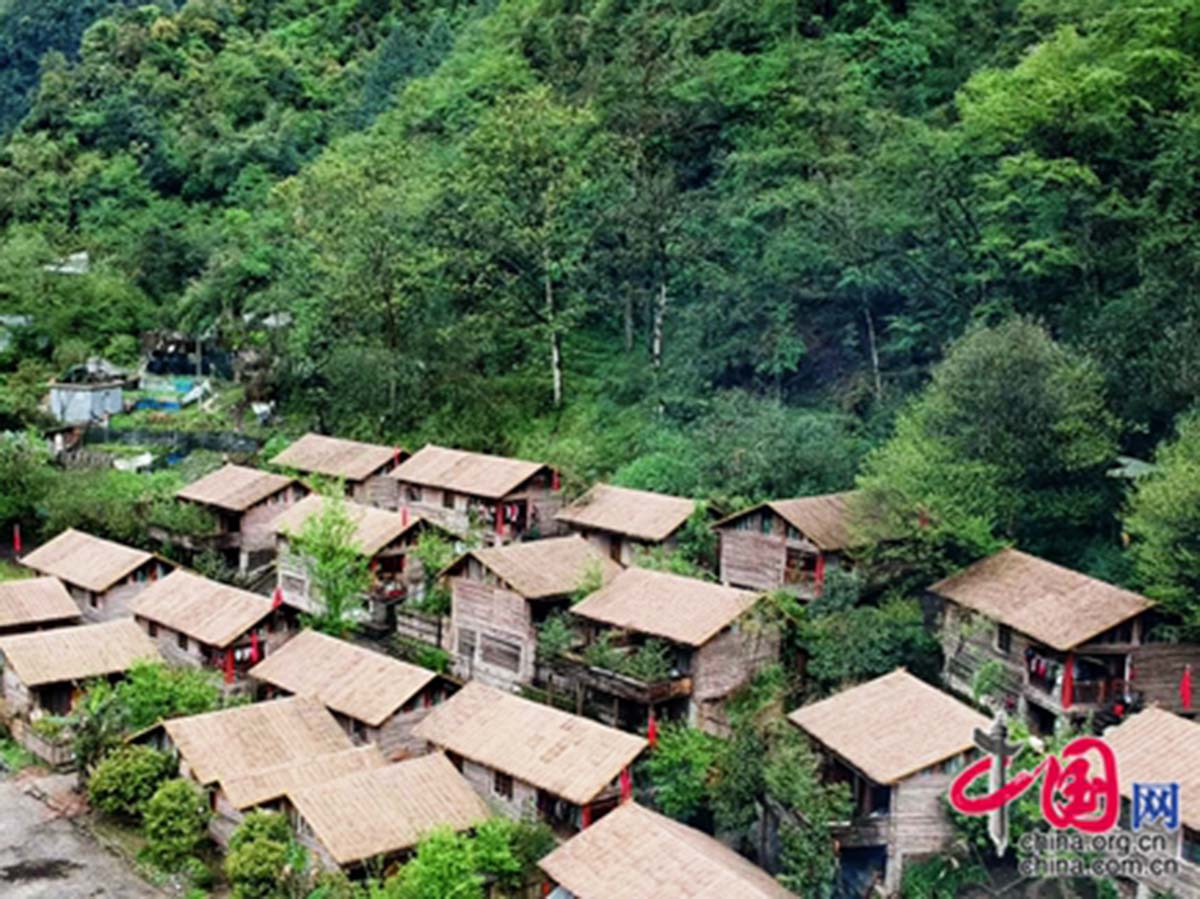New homes in remote Yunnan village to welcome tourists

In a remote hillside village of China's Yunnan province, villagers are readying a grand reopening to welcome back tourists this September, following a two-year hiatus. In the village of Pukawang of Dulongjiang township, the key attraction is a number of cottages that double as villager homes and guesthouses.
The village, nestled into the forested hills along the scenic Dulong River, was closed in October 2017 due to renovation work, as part of Dulongjiang's broader plans to improve road access and facilities in the area. The region is home to about 4,000 Derung, one of China's smallest ethic groups.
Resident Pu Xueqing described her old 20-square-meter home, which was made of wood and thatch. In 2015, the government gave her and 12 other households new homes, each worth about 300,000 yuan (about US$44,500).
Each new cottage measures 120 square meters, of which 40 square meters can be used as a guesthouse for tourists. A hotel company manages the villa space and pays yearly rent of at least 5,000 yuan.
"Since the government helped us build new homes that we can partially rent out to the hotel company, our life has become much better," Pu said, adding that this extra income comes in handy: "My family used to depend on corn, potatoes, sheep, and cattle to make a living, and I had to go out of the village to work to support my family."
Tourists flocked to Dulongjiang during the peak season from Spring Festival to the National Day holiday, to take in the unique charms of living besides the Dulong River, which flows south from the Tibetan plateau through this valley into bordering Myanmar.
Kong Yucai, chief of the township, said the upgraded cottages will be able to host tourists who demand more luxury services. In addition to the idyllic landscapes, Kong said visitors will be able to go fishing and take a zip-line across the river.

At the same time, local authorities are well aware of the need to protect the environment and ensure sustainability.
Gao Derong, who served as the head of Gongshan county between 2001 and 2006, said the Derung people have immense respect for their natural environment.
During the rainy season, when timber washes down from the upper reaches of the Dulong River, villagers fetch the wood from the river to save on the number of trees they need to cut down for firewood.
"We have to keep Dulongjiang as a heaven on earth, and develop tourism while paying attention to environmental protection," Gao said. "That is the largest legacy we can leave to our children."
As a result of these efforts, Dulongjiang, belonging to one of China's poorest regions, was lifted out of poverty in 2018—an achievement that received praise from President Xi Jinping, who in a letter last month congratulated the Derung people and called on them to continue working for a better life.
"Poverty eradication is only the first step; better days are yet to come," Xi wrote in the letter.
For hundreds of years, the remote area was cut off from the outside world every year from October to April by heavy snow.
In 2014, a 6.68-kilometre-long tunnel opened to traffic, cutting travel time to the seat of Gaoshan prefecture from six hours to just two.
Prior to the road construction, Dulongjiang could be reached only by trekking for two to three days along treacherous mountain trails.
The road-building initiative is part of a larger effort to eradicate absolute poverty in China by 2020, lifting roughly 10 million people from poverty each year.
Aside from infrastructure improvement, the government has also brought aid to residents of the Dulong River Valley in the form of employment and training.
Kong Mingguang has worked as a government-paid forest ranger since 2017, earning 960 yuan a month. He is part of the prefecture's ecological poverty-relief program that employed about 50,000 rangers in 2016. Kong also joined a training program for farmers offered by the local government on planting medicinal herbs and keeping bees.
"Because of my lack of education, I didn't have a decent job and my family struggled to eke out a living," he said. "Since I started work as a ranger, I have regular income and live a better life."
Despite improved conditions, however, the local infrastructure is still far from satisfactory, being one of the few areas in China without a highway, railroad, airport or waterway.
Yin Jianlong, vice principal of a school in Dulongjiang, said education is the key to a better life to beat the odds.
The prefecture provides compulsory schooling for all children up to 14 years of age, including Mandarin classes for children in Dulongjiang as early as kindergarten.
"Here, people over 60 cannot communicate with others in Mandarin, but now young people are able to speak fluent Mandarin, and they are eager to go out to explore the outside world," Yin said.
Source: China.org.cn